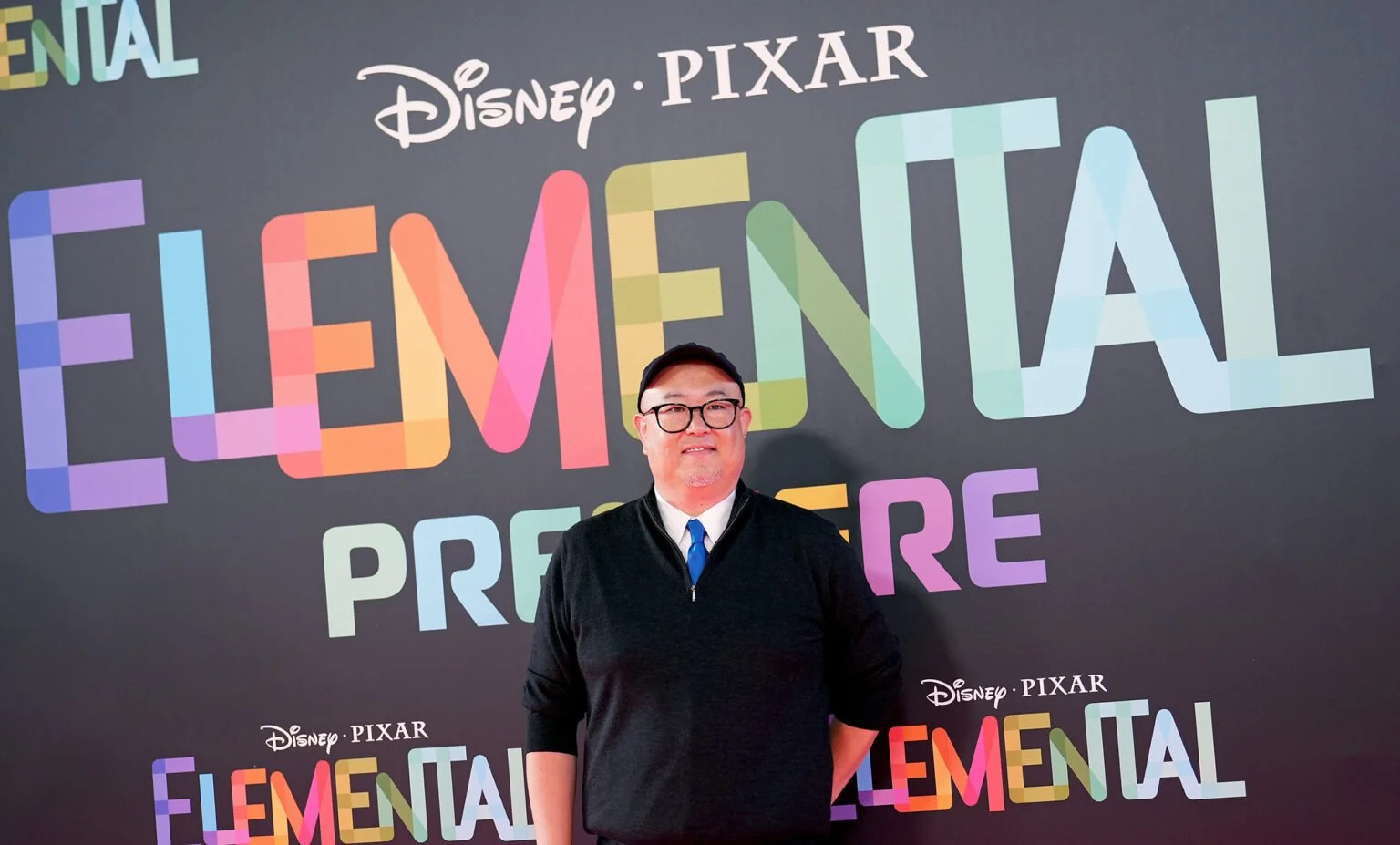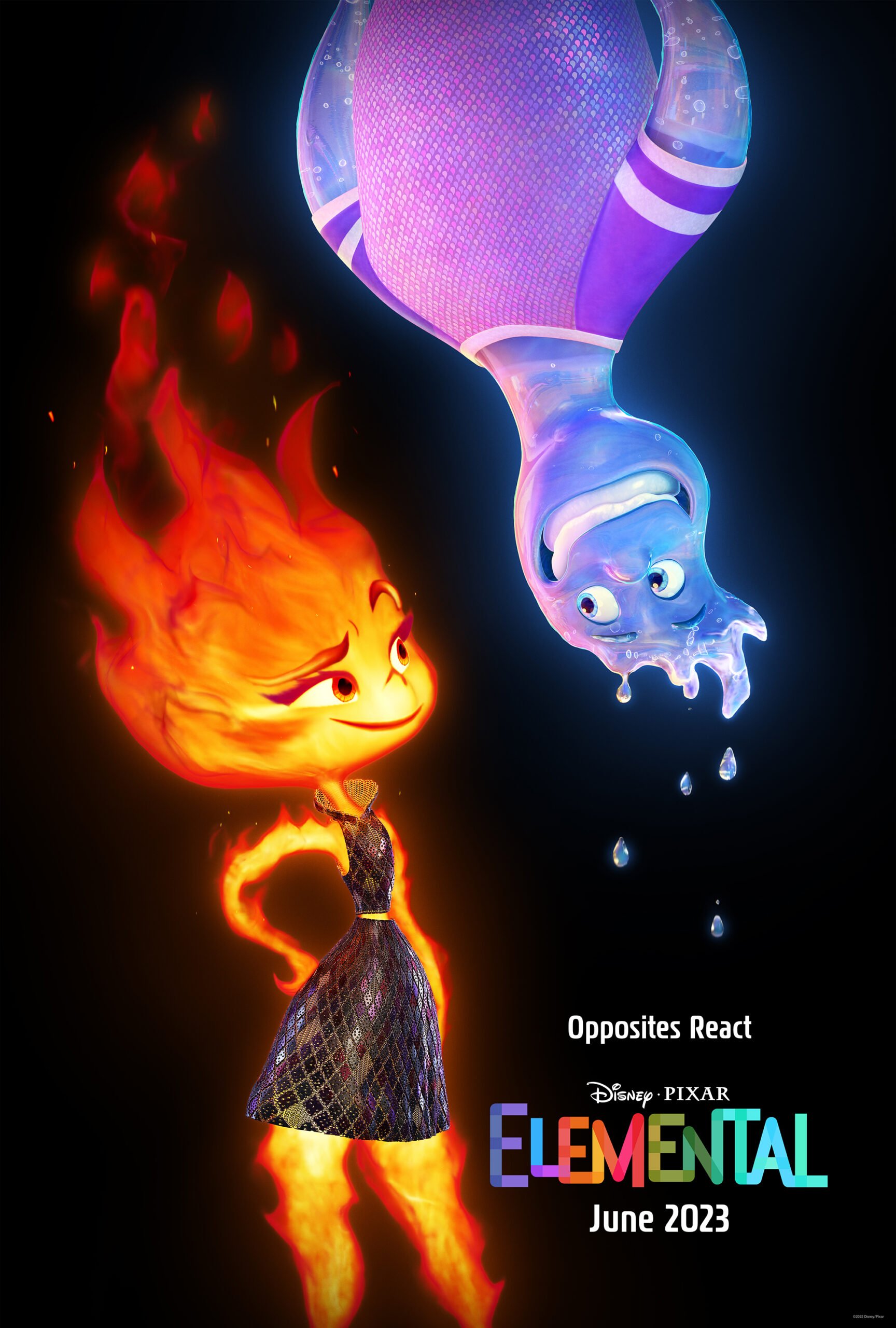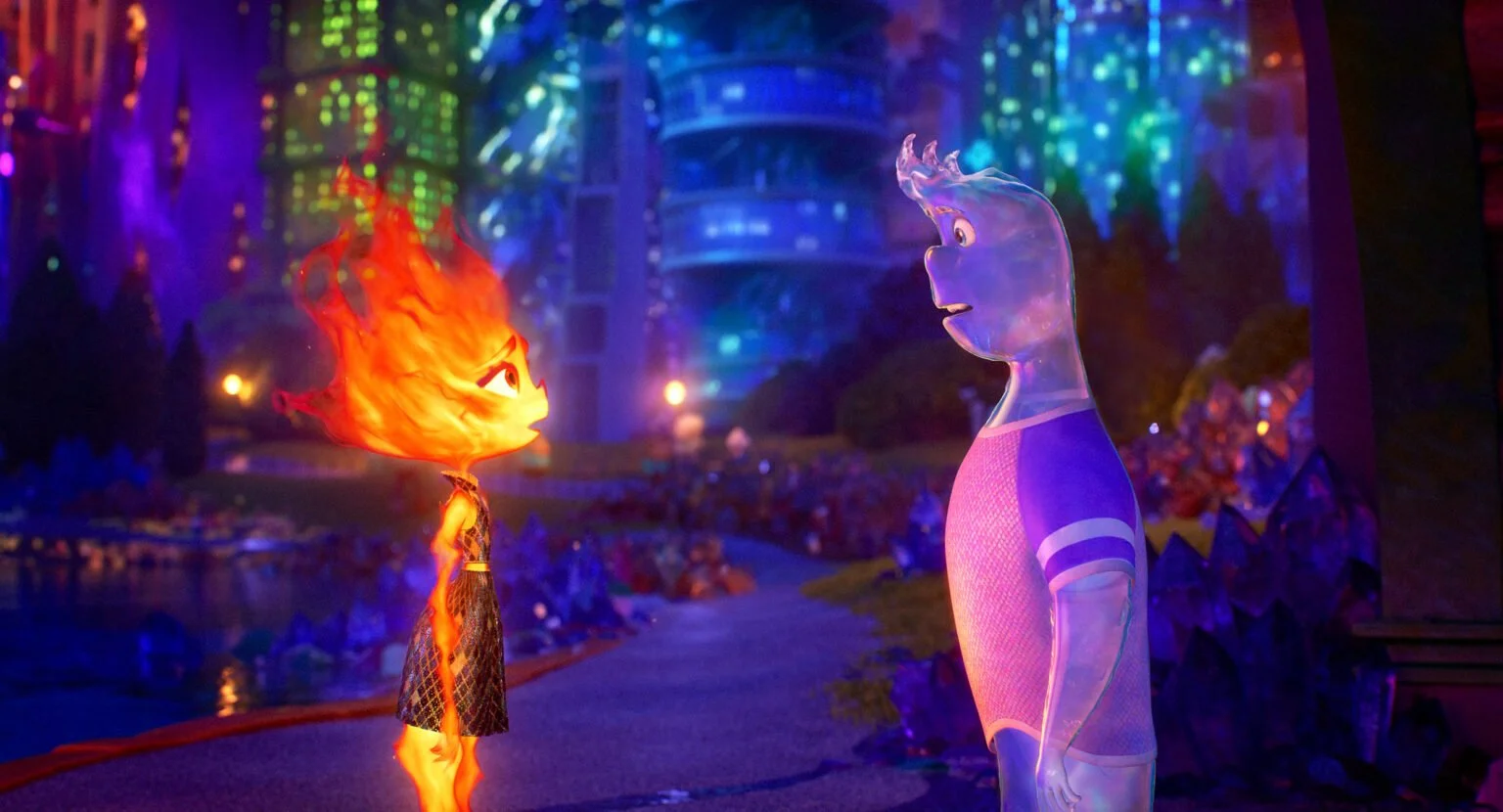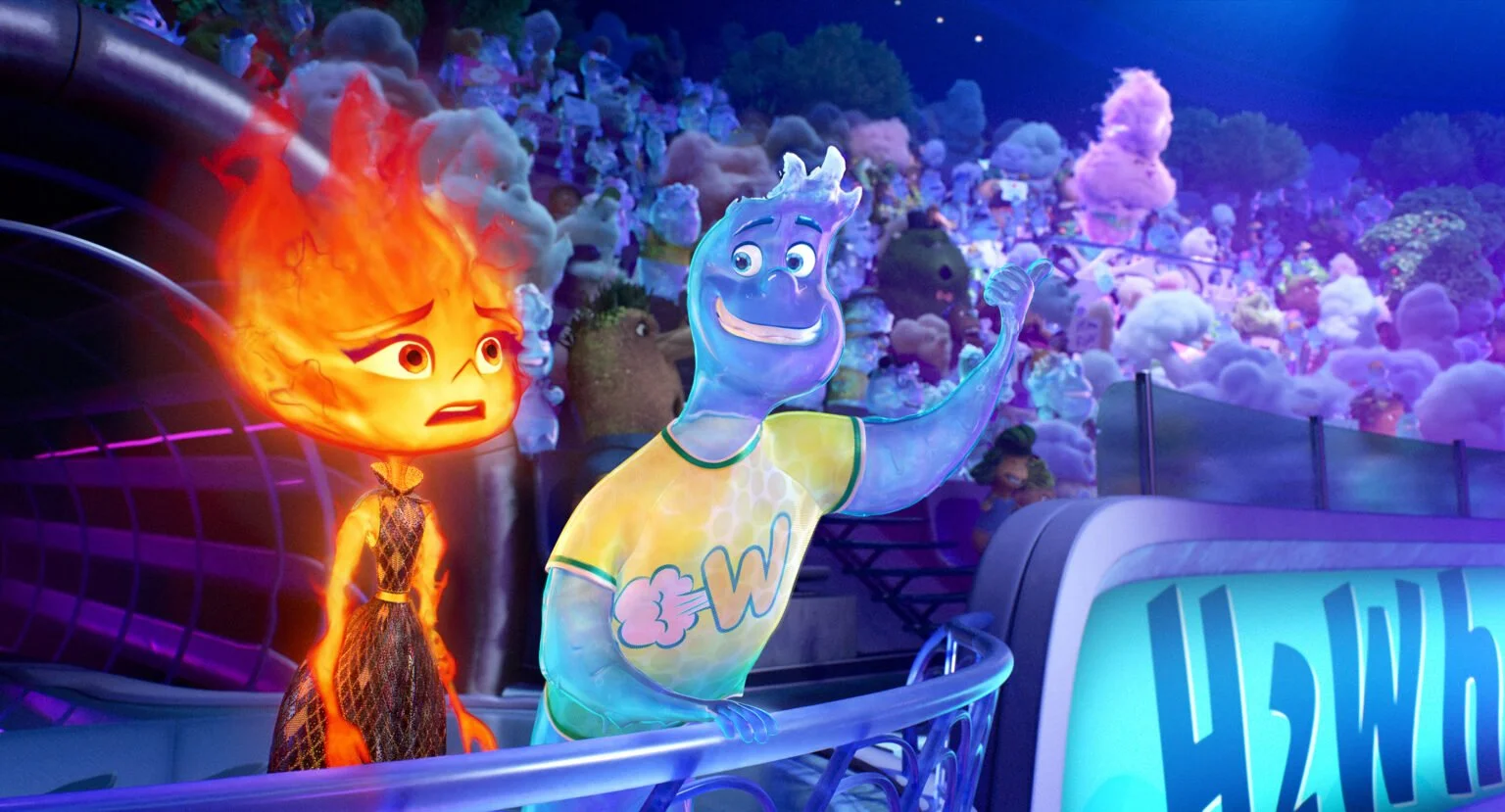How Pixar Director Peter Sohn Brought His Own Immigrant Story to Life with ‘Elemental’
Through the film’s fire and water romance, Sohn writes a love letter to his parents, who travelled from Korea to New York to give him a better life.
Peter Sohn at the Elemental premiere. Photo: Getty Images.
You might recognize Peter Sohn — for being a Pixar director, a voice actor, but more than anything, as the cherubic face of Russell, in 2009’s tear-jerking Up. As the story goes, there’s an old tradition at the studio’s art department, where one person will randomly become the target of all the animators, who take their turn caricaturizing them. The silly designs of Sohn became so popular, the creative team morphed him into the beloved character of Russell.
Sohn shares that character’s vulnerability, and is set to bring even more wide-eyed grins to Pixar fans, along with plenty of tears, with the studio’s latest animated feature, Elemental. An especially personal story for the director, it took seven years to make, and marks his second time directing (after 2015’s The Good Dinosaur, and two decades at Pixar).
Both an immigrant story and a love story, it uses the elements (earth, fire, water, air) to represent race in a sprawling habitat called Elemental City. It specifically follows Ember (Leah Lewis), a fiery gal who strikes up a friendship with easygoing, watery Wade (Mamoudou Athie) as they realize they have more in common than their elements might suggest. But as they fall in love, Ember feels the pressure of her parents’ immigrant past and expectations — of running the family business, and being with someone who looks more like them. It’s a story that not only mirrors Sohn’s, whose parents emigrated from Korea to New York in the 1970s where they ran their own business, a grocery store, and raised him, but likely so many children of immigrants.
“The film started with this question of ‘what if fire and water fell in love, what would happen?’ And from there, it was this nascent thing that, as it was growing, the elements connected very much to my upbringing in New York, where it was a lot of disparate families coming together just to make a life,” says Sohn. “Some families mixed and some didn’t, some connected, some didn’t. And so that metaphor of the elements started to live on top of this love story, but then naturally from there, [the idea of] characters being foreign coming into the city also started to blend in with this idea of mixing and not mixing, and it all came naturally.”
A still from Elemental. Photo: Disney/Pixar.
One example of a specific and hilarious personal touch is when Ember’s grandmother’s dying words for her are “Marry fire!” It’s akin to the time Sohn’s grandmother’s dying words were, for him, “Marry Korean!” Oof.
Complex as the story is to a certain degree, Sohn felt confident it had legs when countless crew members began expressing how they connected to it. At one point, the film’s team had over 100 Pixar members come together just to chat about being second generation immigrants, and what that experience was like, in order to feed the story.
“It moved me a great deal,” said Sohn. “There was such a wide variety of point of views and…that greatly informed the characters’ journeys in emotional and hilarious ways.” For instance, an Indian woman on the team shared what it was like falling in love with a German man, an unlikely union in her culture. The two travelled to India, where they visited an astrologer who felt they were a perfect match, transcending cultural expectations. The way this spiritual moment informed what their love could be like and kick-started their marriage inspired the character of Cinder, Ember’s mom, who is a matchmaker and uses the smell of the fire characters’ smoke to sense chemistry.
A still from Elemental. Photo: Disney/Pixar.
One might think such a diverse narrative would receive pushback (like the recent Polite Society), especially with such complex visuals, but Sohn says that never came from Pixar, though he often discussed it “in story terms,” particularly as a romance, rather than it explicitly being an immigration story. Still, the studio has made a mark over the last decade for churning out increasingly diverse films, including 2017’s Coco, 2020’s Soul, and 2022’s Turning Red. The director says, too, “There are many more diverse stories coming.”
Although we spoke several weeks before Sohn was set to finish production on Elemental, he did say he felt a moment of catharsis coming. As many can probably relate, while growing up in New York, which was considerably less multi-cultural than it is today, Sohn was often bullied — for his name, for what he ate, for looking different. When his parents encouraged him to find pride in his Korean culture, he didn’t understand — until he grew up, moved out on his own, got his first job, and got married. Each of those rites of passage was a rude awakening.
Peter Sohn. Supplied photo.
Sohn explains, “Then you just go, ‘How did they do all of this without the language? How did they do all of this without any family here?’ It was this emotional ride. … This whole thing has been a minefield of emotion where you’re not prepared to hit something. And then when you do, you’re satisfied.”
While there’s much to take away from Elemental, for Sohn, the hope is that viewers — younger and older — will feel an appreciation for their parents and all they’ve done for us, and maybe also give them a call after the credits roll.
Although his parents died before he was able to screen Elemental for them, their hands are all over the film. Sohn had shared the concept with his father, who he spent a lot of time with, asking him stories about his past that he may not have heard otherwise, learning more about him. His mother, meanwhile, may not have had the best grip on CGI animation (not many of us do), but she was able to see some of the world-building at hand, and was “astonished” by the production.
Sohn says with that signature smile, “She was proud.”
Elemental is in theatres now.





